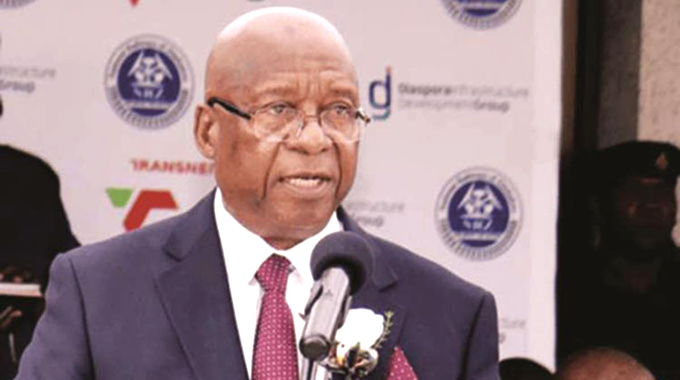Bill grants equality for expectant mothers

Zvamaida Murwira Senior Reporter
The Labour Amendment Bill now before Parliament for debate grants employed pregnant women three months paid maternity leave for each pregnancy, removing the one-year qualifying period and the limit of three terms of paid maternity leave, as part of Second Republic’s efforts to grant women full equality.
In terms of the current labour law, maternity leave is granted for a period of 98 days on full pay to a woman employee who has served for at least one year and limits the number of periods of such leave to three by any one employer.
But the proposed law gazetted recently, the qualifying time and the number of times maternity leave is granted will be removed as Government seeks to align the Labour Act with the Constitution.
In practical terms very few career women have more than three children and few employers will willingly hire an obviously pregnant woman, but the principle has been established.
The major legal changes upgrading the status of women were made in the 1980s, starting with the Legal Age of Majority Act which besides lowering the legal age of majority to 18, effectively emancipated all black women by allowing them to buy, own and run businesses and buy and own assets without needing any input from their father or husband.
White women had won this right in the 1930s.
Since then there has been a number of legal changes, some now like the Labour Act on pregnancy, being upgraded. The original section 18 granting paid maternity leave with qualifications and limits was considered a major advance at the time it was passed.
The Constitution now in force has made a determined effort to accelerate the process of going beyond the non-discriminatory laws to make the position of women more equal.
There is the quota where 60 seats in the National Assembly have been reserved for them and in the Senate, party lists for the proportional representation senators must alternate the genders with a woman taking the first position.
State entities must have equality on their boards, and the convention has arisen that the chairman and vice-chairman should be of different gender.
The Second Republic led by President Mnangagwa has since extended the provision in the Constitution for women’s quota by another two terms.
The initial provision was set to end in 2023 after coming into effect in 2013 but the extension was required because the proportion of women in the constituency seats was still on the low side. The new provision now requires that at least one of those holding the special women’s in each province should be a woman living with a disability.
Other provisions in the Labour Amendment Bill include the desire to curb child labour by increasing the penalty a person found guilty of conducting child labour with the maximum sentence raised from two to 10 years.
The Bill will also give clarity on retrenchment of employees where an employer has tried to minimise their obligations by giving most workers fixed-term contracts rather than permanent posts.
The proposed law seeks to cover the difference between employees on permanent contracts and fixed term contracts by providing that an employer who employs the majority of their employees on fixed term contracts will have to make use of retrenchment provisions when the contracts are terminated, rather than just give the notice set out in a fixed term contract.
There was no clarity on the application of retrenchment between employees on fixed term contracts and permanent employees.
The Labour Amendment Bill also seeks to reduce the probability of employers who deliberately escape the obligation to pay full and better retrenchment packages to their employees.
The main idea for this change is to promote a more favourable retrenchment package for employees in the event that an employer is capable of paying above and better.
Employees will also be free to make representations to the Retrenchment Board where they allege that an employer has the capacity to pay a better retrenchment package than that offered.
There is a new section to ensure that employees do not evade having to pay retrenchment packages to their employees by fraudulently or recklessly conducting their business in a manner that renders the employer unable to pay such retrenchment package.
The minimum retrenchment package must be paid within 60 days from the date of retrenchment.











Comments